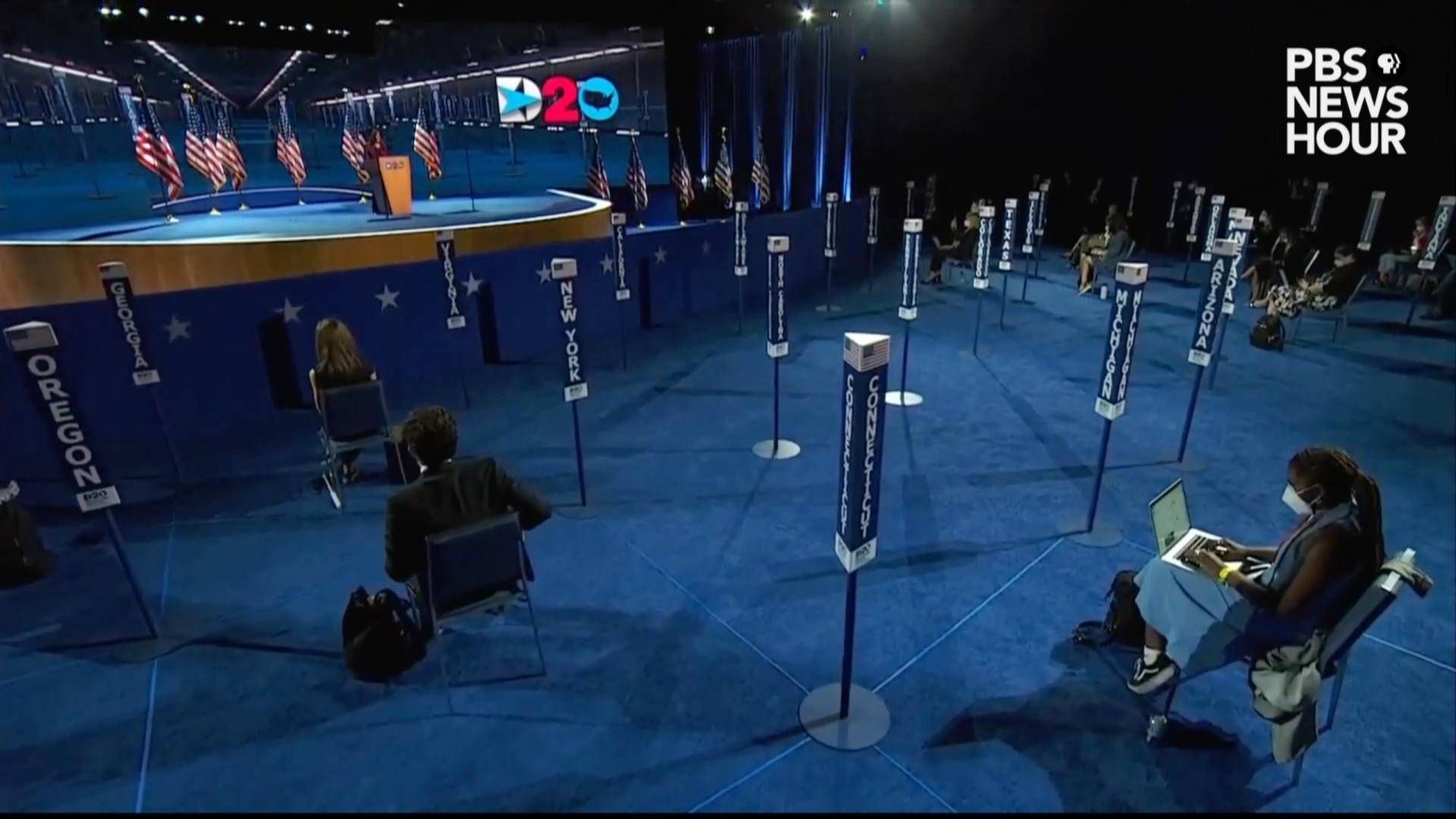Step Inside the Unconventional Democratic National Convention
Minnesota plays a key role in the national political convention.
The national conventions kicked off with Democrats gathering virtually, while the President came to Minnesota in person, because Minnesota plays an important role in presidential politics.
The opening night of the Democratic National Convention started with a video featuring Minnesota’s Lt. Gov. Peggy Flanagan, who is the highest ranking elected Native American official in the country. Another Minnesota woman, Sen. Amy Klobuchar, cast the state’s votes for Joe Biden and addressed the convention virtually on day one - something that national PBS asked us to contextualize.
"Minnesotans wanted to get a vice president on the ticket, I like to joke we’re the land of 10,000 lakes, but also vice presidents: Humphrey, Mondale, we thought Klobuchar, she was in the running," said political reporter Mary Lahammer. "If you're tired of the noise and nonsense, you have a home with me and you have a home with Joe Biden,” Klobuchar said as the former presidential candidate spoke in primetime at the convention.

”Trust me with the presidency and I’ll draw on the best of us, not the worst," Biden told delegates and an online audience. "We can and will overcome this season of darkness.”
Meanwhile, President Donald Trump visited Minnesota in person as the Democratic convention began. Location matters, and he picked 1st Congressional District, previously represented by Gov. Tim Walz, who held the Republican-leaning district. At an online convention breakfast, the governor said that he spent the weekend trying to get the White House not to visit the George Floyd memorial. The White House has said that Walz did not specifically talk to anyone there, suggesting that the conversation didn’t happen. The debate surrounding whether or not the president should visit the memorial ignited chatter from people on social media on both sides of this volatile topic.
The previous president took a very direct and unprecedented aim at the current president. “Donald Trump hasn’t grown into the job because he can’t," Pres. Obama said. "Our democratic institutions are threatened like never before.”
Another history maker, the first woman of color on a presidential ticket, made note of Minnesota’s role in racial strife. Kamala Harris said there's “no vaccine for racism, we have to do the work for George Floyd.” Finally, the convention concluded with nominee Joe Biden, who vowed, "I will be an American president for all.”
Stay tuned to Almanac for weekly updates on the impact of the upcoming November elections on Minnesotans. The show airs on TPT2 on Fridays at 7 pm and on Sundays at 9:30 am.
Mary Lahammer also offers this roundup of the Republican National Convention, which was held both virtually and in-person.
Summer politics are often sleepy, but this year has been an exception. Mary Lahammer takes a look at the police reform bill passed by the legislature in July.
George Floyd’s police killing has brought together communities in a show of resilience – but it’s also revealed deep-seated racial inequities in access to healthy food now that the Lake Street area, where many grocery stores were damaged or destroyed, has become a food desert. Almanac reporter Kyeland Jackson examines how that lack of food access is actually rooted in racism-charged issues related to access to jobs and opportunities to build wealth.
